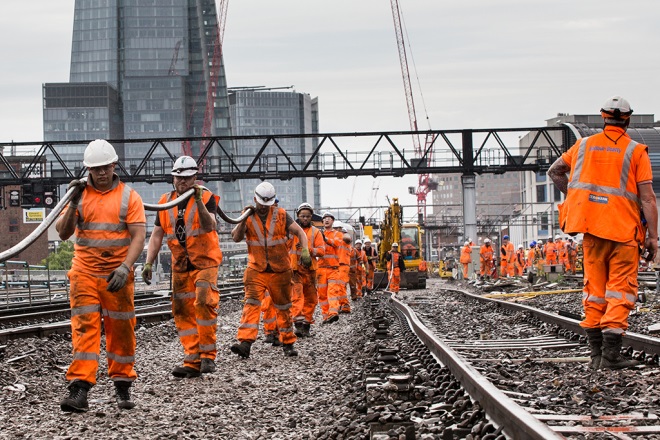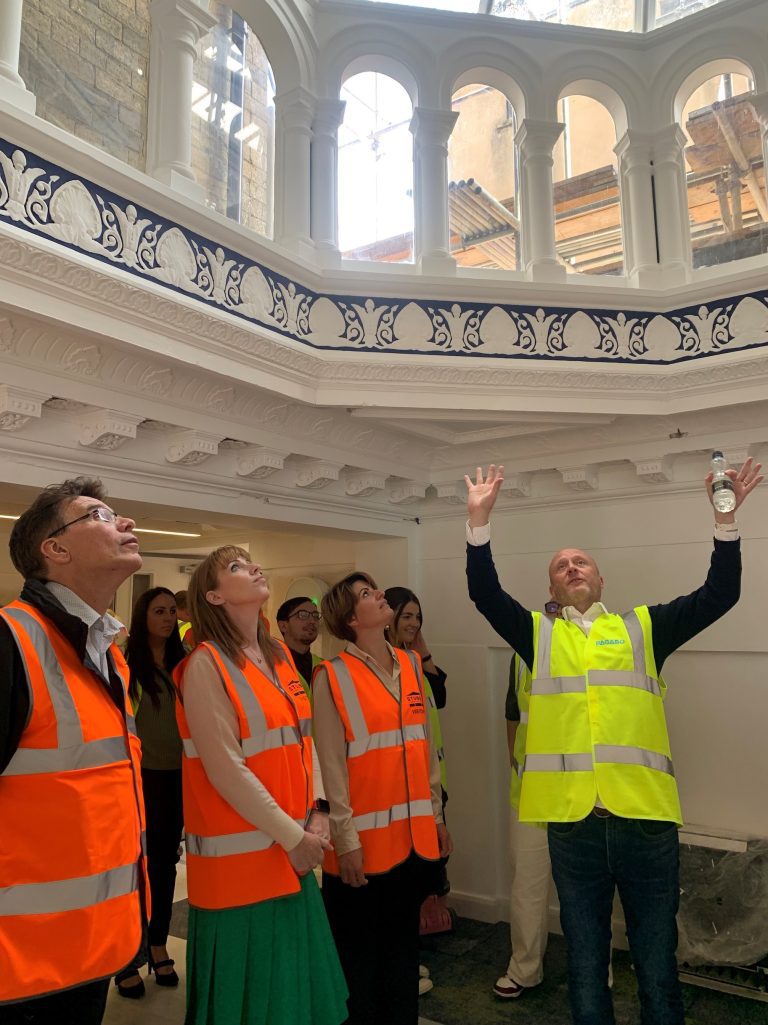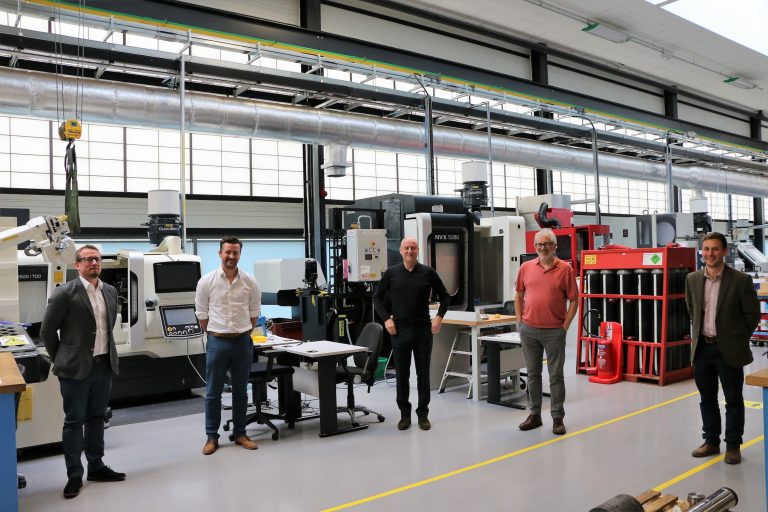A GROUNDBREAKING new collaboration aimed at transforming the future of the UK’s construction industry can be unveiled today. National framework provider Pagabo has forged a research agreement with the University of Sheffield Advanced Manufacturing Research Centre (AMRC), aiming to together challenge current methods in the construction sector, and pioneer fresh ideas and innovations that embrace new technology and advanced manufacturing methods. Joining them in the venture are C4DI, the Hull-based incubator company that promotes growth in tech businesses, specialist data centre company Yondr and industry leader Lord Bob Kerslake. Just a few weeks into the new relationship, vital research into harnessing technology to streamline health and safety methods on construction sites is already under way. Gerard Toplass, executive chairman of Pagabo, said: “Everyone agrees that construction is a sector that has been left behind in terms of new ways of working and innovation. Many methods in construction have been used for decades. “What we want to do as a group is to totally shake up the construction sector – and create real change to drive economic growth and establish the UK as a global innovator.” He said that Hull-based Pagabo was so committed to the use of new methods that it had created The Future of Construction (TFOC) initiative to drive industry-wide collaboration to shape the sector’s future. “It’s vital that we think about the industry as a whole and how we can promote new technologies to improve how we do things,” he explained. “The construction sector needs a revolutionary moment – similar to the aerospace industry when it created the ‘black box’. “This new collaboration between Pagabo and the AMRC will bring the sector together, unify common objectives and drive forward real change. We will be building an enterprise that seeks to leverage new techniques, innovation and automation. “We intend to build on the government’s agenda for value, procuring for value and its ‘build, build, build’ initiative. But we also want to foster a new way of doing this that future-proofs the construction sector, secures jobs and builds sustainably – with economic, social and environmental processes in mind.” The University of Sheffield AMRC is a network of world-leading research and innovation centres that work with manufacturing companies of all sizes around the globe. It has particular strengths in the automotive and aerospace industries. Its pioneering research develops innovative methods that are of practical use to the manufacturing industry. The organisation transforms industrial and economic performance by making step changes in productivity, increasing competitiveness, developing new products and processes and training new talent and skills. Steve Foxley, CEO of the University of Sheffield AMRC, said: “We see construction as a wildly exciting and opportunity-filled industry to benefit from our learnings over the past 20 years. “We want to work closely with Pagabo to create a real catalyst for change. Pagabo has a unique and important role within the industry as a framework provider and has influence across a wider portion of the industry via its ecosystem of contractors and supply chain partners. “We will be learning from the automotive and aerospace industries and seeing where we can adapt methods and innovations that would work in the construction sector. “We want to look at areas like enterprise architecture, the future of buildings in a digital world, and how standards and interfaces will enable the digital world in construction.” Lord Kerslake, the former head of the civil service, is a non-executive chairman of Pagabo who helped forge its relationship with the AMRC, seeing an opportunity to transform the construction sector through the sharing of expertise and collaboration. “Research and development remains low in construction,” he said. “And there is very little collaboration on this among key players in the industry. Combined, we want to make a real and transformational difference in construction within the next ten years.” He said one of the biggest objectives was to feed into the government’s levelling up agenda to create a more level economic playing field across the UK. “This is a project which sees innovation and development and research in the construction sector happening up north, in Sheffield and in Hull, with a huge focus and drive for economic growth. This new collaboration between Pagabo and the AMRC is hugely powerful.” John Connolly, managing director of C4Di, said the research agreement is powerful because of the way it will accelerate new ways of partnering on innovation. He said: “There are interesting models of innovation happening around the country, but the AMRC is the exemplar of how to bring large industry bodies together. Their experience harnessing the mental horsepower of large academic institutions and collaborating with industry to drive change is incredibly exciting. “This new research agreement benefits everyone. Leveraging learning and experience from the AMRC, and Pagabo’s connections within construction is a formidable force. The AMRC brought large industry players together to solve their challenges and Pagabo and its TFOC model builds on that; this is an exciting next step to extend the work of both organisations through collaboration.” Dave Newitt, CEO of Yondr, the specialist data centre operator, is involved with Pagabo and its TFOC initiative. He said: “We believe that construction has a great deal to learn from manufacturing,” he said. “We want to look at modularisation and taking works off-site – so, building off site rather than on site. It’s how the manufacturing world operates, and we want to emulate that to improve productivity.” Professor Rab Scott, head of digital at the AMRC, said that in just four weeks, the new collaboration had already created change. “We have already started working with Pagabo on health and safety on site and looking at ways of using digital technologies to streamline processes. In terms of results, if we can prevent one accident or one hour’s lost time, it has an immediate benefit, and our work is immediately scalable. “The diversity in the team is one of the great things that makes me get up in the morning. We are proud of what we are










